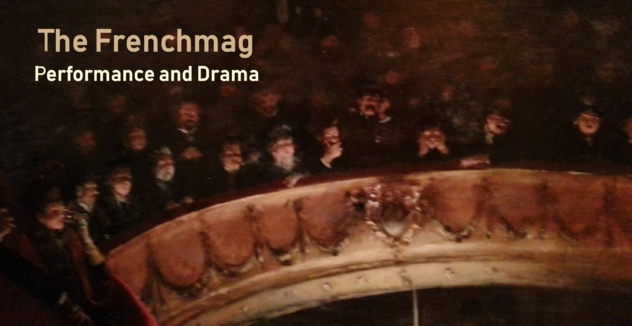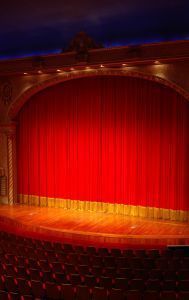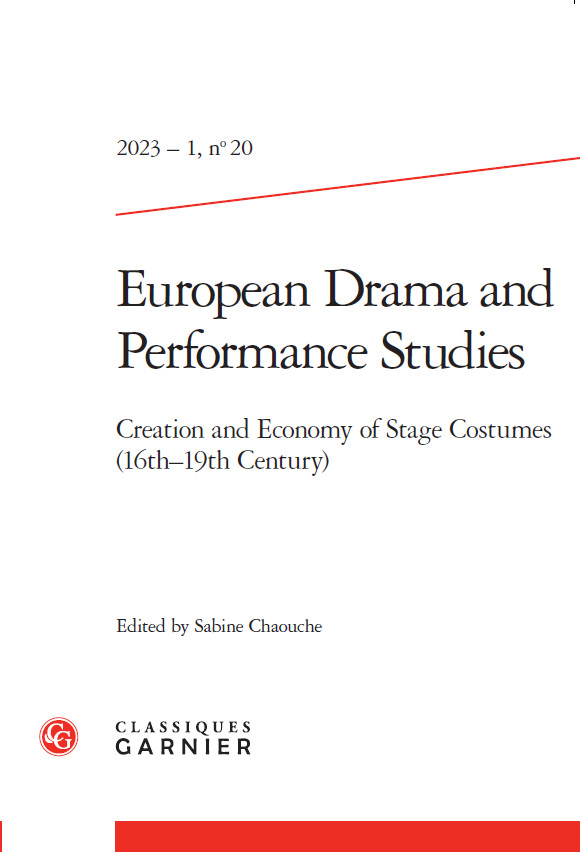Pause in your trek O Time! Pause in your flight,
Favorable hours, and stay!
Let us enjoy the transient delight
That fills our fairest day.
Let's love, then! Love, and feel while feel we can
The moment on its run.
There is no shore of Time, no port of Man.
It flows, and we go on
Favorable hours, and stay!
Let us enjoy the transient delight
That fills our fairest day.
Let's love, then! Love, and feel while feel we can
The moment on its run.
There is no shore of Time, no port of Man.
It flows, and we go on
Two centuries ago exactly, Alphonse de Lamartine wrote in “The Lake” published in Poetic Meditations: “O Temps suspends to vol” (“Pause in your trek O Time!”). This melancholic poem expressed the way time slips inexorably, being elusive and unstoppable. Hence the poet’s lamentation: “Upon the sea of time can we not ever/ Drop anchor for one day?” Indeed, we can only ever go back in time through memories alone, those that have shaped our personal lives.
From childhood, education is anchored in our existence with its flow of playgrounds where the mind, like a bee, freely gleans the flowers of knowledge and plants seeds to the surface of lifelong dreams. As a child we enjoy amazing discoveries and new learning, we ask questions around and to ourselves, but this genuine feeling of excitement surreptitiously fades away as we grow older, as we are gradually trapped in a phony box: that of the mark.
We learn from an early age that we must make an effort to get a mark; not simply a grade but the best grade; to make our parents proud of us; because we secretly, perhaps without realizing it, seek to satisfy our self-esteem and ego; and to build up our self-confidence, as if the grade was everything and we were nothing without it―or at least never enough when marks are poor or average. Over time, we accumulate a series of numbers on report cards; these are then transformed into grades and percentages that translate into levels and ranks.
Most students become obsessed with getting good grades. Some drop out, sinking into the cyclical rodeo of rankings and evaluations, and over time they fall deeper and deeper into the abyss of school hate, thinking they are not enough. Some people play the game, enter the race for the mark and focus on the point of arrival, spending their time running endlessly, losing sight, as time goes by, of knowledge. The semesters pass as the knowledge gained begins to evaporate like a puddle that vanishes quickly after a storm when the sun's rays come to take it away. But is there any enlightenment or awakening in this race for the mark?
From childhood, education is anchored in our existence with its flow of playgrounds where the mind, like a bee, freely gleans the flowers of knowledge and plants seeds to the surface of lifelong dreams. As a child we enjoy amazing discoveries and new learning, we ask questions around and to ourselves, but this genuine feeling of excitement surreptitiously fades away as we grow older, as we are gradually trapped in a phony box: that of the mark.
We learn from an early age that we must make an effort to get a mark; not simply a grade but the best grade; to make our parents proud of us; because we secretly, perhaps without realizing it, seek to satisfy our self-esteem and ego; and to build up our self-confidence, as if the grade was everything and we were nothing without it―or at least never enough when marks are poor or average. Over time, we accumulate a series of numbers on report cards; these are then transformed into grades and percentages that translate into levels and ranks.
Most students become obsessed with getting good grades. Some drop out, sinking into the cyclical rodeo of rankings and evaluations, and over time they fall deeper and deeper into the abyss of school hate, thinking they are not enough. Some people play the game, enter the race for the mark and focus on the point of arrival, spending their time running endlessly, losing sight, as time goes by, of knowledge. The semesters pass as the knowledge gained begins to evaporate like a puddle that vanishes quickly after a storm when the sun's rays come to take it away. But is there any enlightenment or awakening in this race for the mark?
In our world, algorithms turn into a kind of obsession: we live in a frenzy to put numbers on everything, to quantify everything, to measure everything because we ourselves are constantly being measured and quantified. So we ourselves become numbers, numbered by other numbered humans. We have all been formatted into numbers in one way or another. To make a profit, you have to make numbers.
Ever since the time of positivism and capitalism, we have been linked to the scientific and more recently, neo-managerial mode and method and their garlands of mathematical formulas that seem to promise a bright future in our newly uncertain times. Everything is now about performance and performance indicators―but no longer knowledge and culture. In fact, the Arts and Humanities and their core discipline, philosophy, are most often seen as useless by the ‘quantifiers’―a discipline from the past although it fundamentally involves critical and exploratory thinking. The main purpose of the Arts and Humanities is to reflect on what it means to be human but also humanism; what existence is made of and what the essence of happiness is. It does not truly generate income but substance. Funding in Academia declines in the Arts and Humanities as research in this particular area is increasingly seen as non-essential―a waste of time and money.
The awkward lapse of time due to the Covid 19 pandemic, or rather the curious time loop―as if the academic world had been put on hold and methods of teaching suddenly been outdated―seems to have reset the clocks in an unexpected way. As the tremors of the Covid 19 spread around the world, the lecturers’ routine abruptly crumbled and collapsed, devoured by time-pressure (they had to move fast to full online teaching), by time-consuming modes of teaching delivery that required extra-time preparation such as videos, audio recordings or flipped learning classes, by new working rhythms and schedules, and by the long hours spent in the maze of new software and tools that had to be juggled. “Pause in your trek O Covid!” moaned the lecturers, lost in the turmoil of a computer crashing after too many working hours or overwhelmed by the whims of a poor internet connection.
Many freshers were faced with new challenges such as isolation and loneliness, the difficulty of gaining real independence, and escaping, in some cases, from the family cocoon or a noisy environment, technical problems preventing them from following live courses, etc. The list of grievances could be long but nevertheless, with the Covid hardship, came ease: lecturers paid more attention to the students’ needs, trying to keep in touch with them more often and encouraging their effort; conversely, students proved to be more motivated and began to appreciate and enjoy more their studies and lecturers’ dedication―this ray of light may have been the result of new temporary policies: students knew that they would get Pass or Fail grades.
Is this therefore not the right time to rethink our education system, which should focus on how to help individuals to develop? Is it not time to give substance back to education instead of overemphasizing the sciences? Is it not time to restore the Arts and Humanities to the central place they deserve, for they are proving to be a central part of life? A world that has no understanding of the past, no sense of aesthetics and beauty, no knowledge of its cultures, artists, writers, and thinkers, is a world that is doomed to dry up and die spiritually.
Oddly enough, thanks to Covid 19, the world of education has come closer to everything related to human existence and its foundations. If time slips into flight, academia, pushed to the edge, now has to learn how to fly.
Sabine Chaouche
Sunway University
Ever since the time of positivism and capitalism, we have been linked to the scientific and more recently, neo-managerial mode and method and their garlands of mathematical formulas that seem to promise a bright future in our newly uncertain times. Everything is now about performance and performance indicators―but no longer knowledge and culture. In fact, the Arts and Humanities and their core discipline, philosophy, are most often seen as useless by the ‘quantifiers’―a discipline from the past although it fundamentally involves critical and exploratory thinking. The main purpose of the Arts and Humanities is to reflect on what it means to be human but also humanism; what existence is made of and what the essence of happiness is. It does not truly generate income but substance. Funding in Academia declines in the Arts and Humanities as research in this particular area is increasingly seen as non-essential―a waste of time and money.
The awkward lapse of time due to the Covid 19 pandemic, or rather the curious time loop―as if the academic world had been put on hold and methods of teaching suddenly been outdated―seems to have reset the clocks in an unexpected way. As the tremors of the Covid 19 spread around the world, the lecturers’ routine abruptly crumbled and collapsed, devoured by time-pressure (they had to move fast to full online teaching), by time-consuming modes of teaching delivery that required extra-time preparation such as videos, audio recordings or flipped learning classes, by new working rhythms and schedules, and by the long hours spent in the maze of new software and tools that had to be juggled. “Pause in your trek O Covid!” moaned the lecturers, lost in the turmoil of a computer crashing after too many working hours or overwhelmed by the whims of a poor internet connection.
Many freshers were faced with new challenges such as isolation and loneliness, the difficulty of gaining real independence, and escaping, in some cases, from the family cocoon or a noisy environment, technical problems preventing them from following live courses, etc. The list of grievances could be long but nevertheless, with the Covid hardship, came ease: lecturers paid more attention to the students’ needs, trying to keep in touch with them more often and encouraging their effort; conversely, students proved to be more motivated and began to appreciate and enjoy more their studies and lecturers’ dedication―this ray of light may have been the result of new temporary policies: students knew that they would get Pass or Fail grades.
Is this therefore not the right time to rethink our education system, which should focus on how to help individuals to develop? Is it not time to give substance back to education instead of overemphasizing the sciences? Is it not time to restore the Arts and Humanities to the central place they deserve, for they are proving to be a central part of life? A world that has no understanding of the past, no sense of aesthetics and beauty, no knowledge of its cultures, artists, writers, and thinkers, is a world that is doomed to dry up and die spiritually.
Oddly enough, thanks to Covid 19, the world of education has come closer to everything related to human existence and its foundations. If time slips into flight, academia, pushed to the edge, now has to learn how to fly.
Sabine Chaouche
Sunway University






